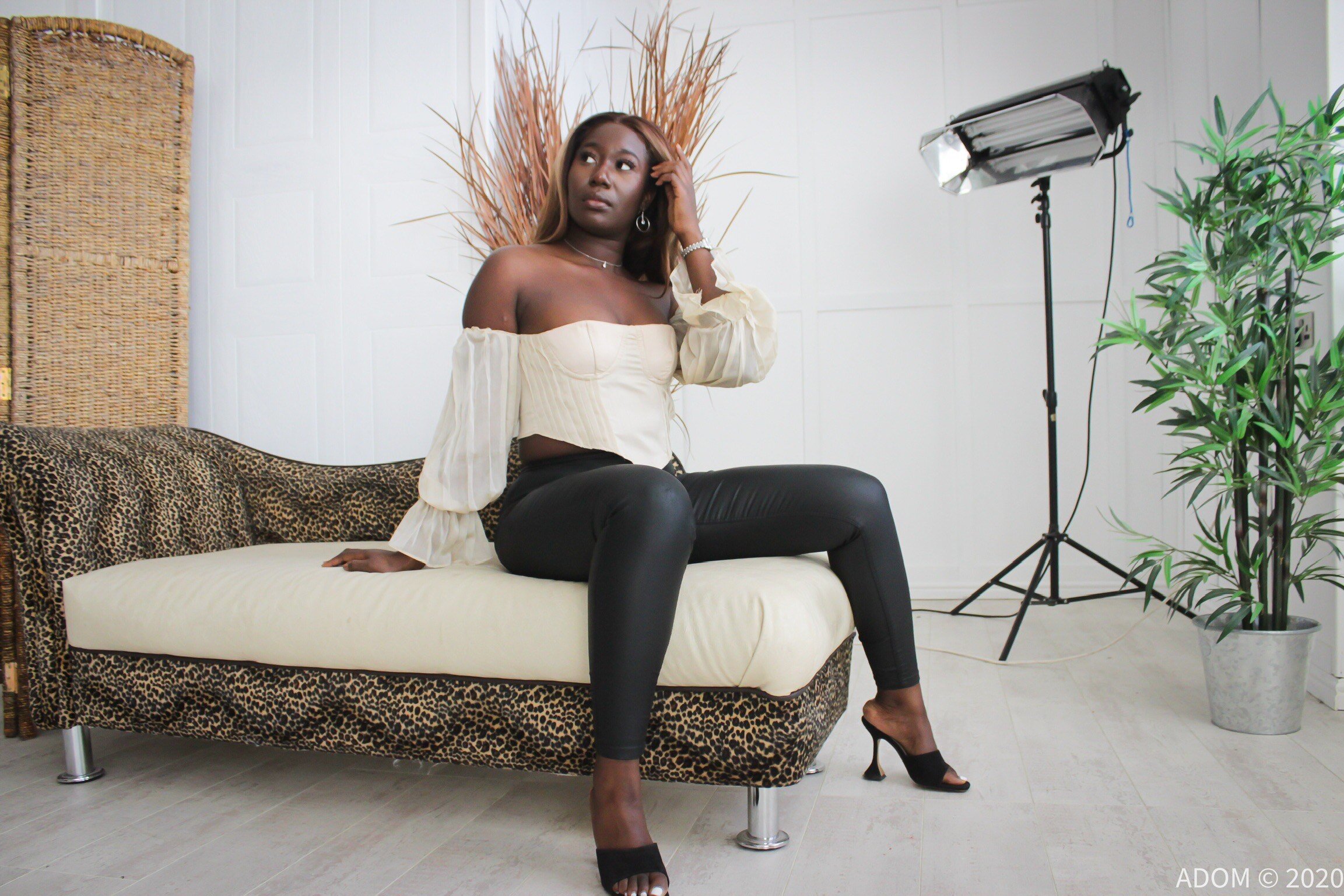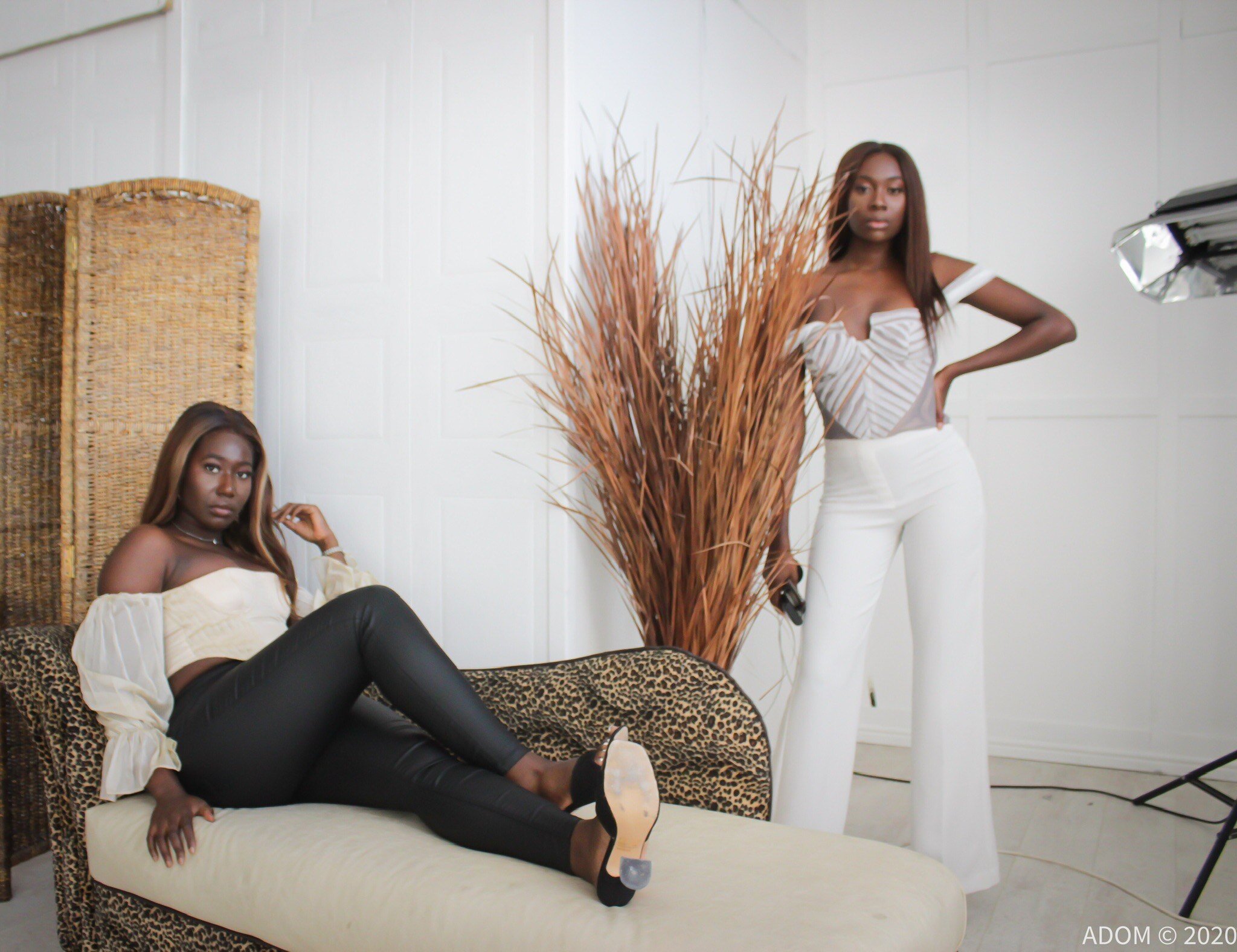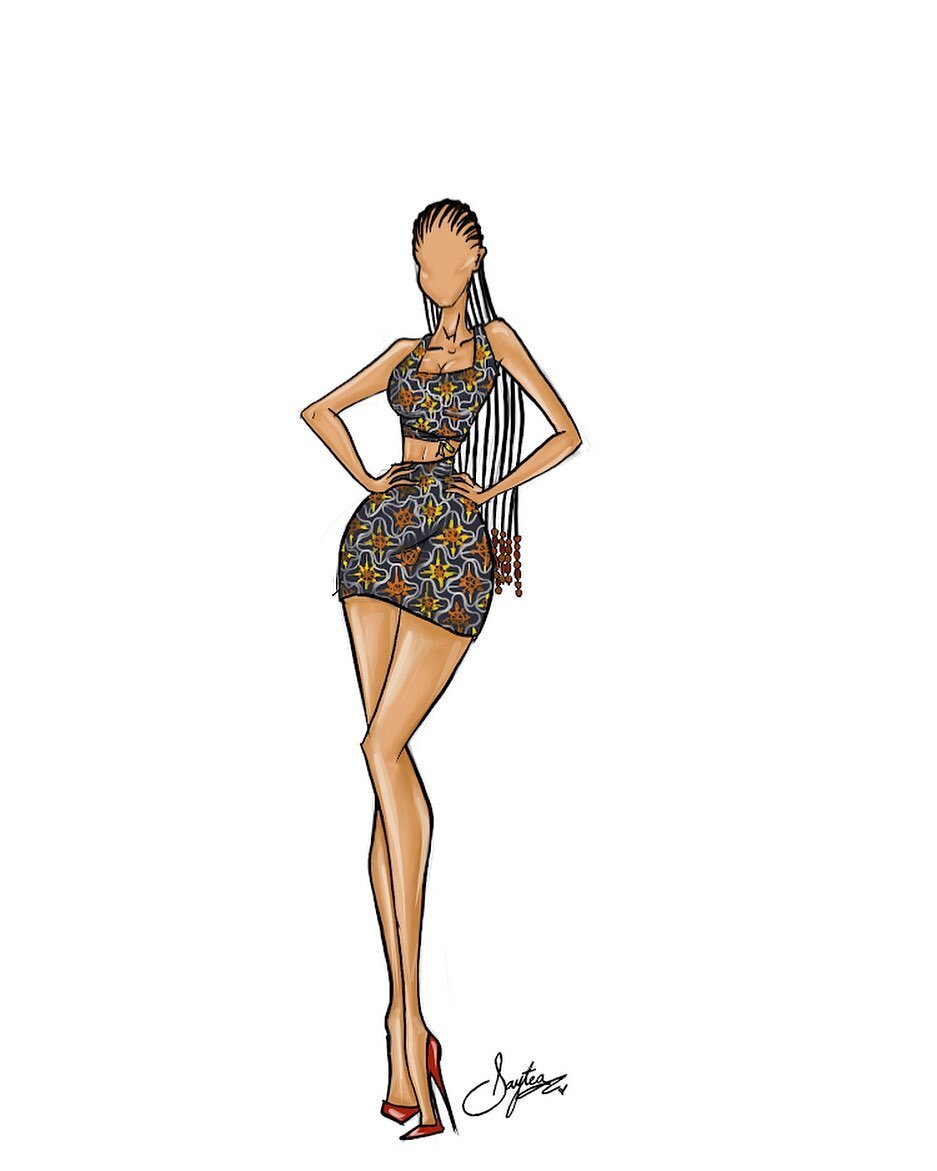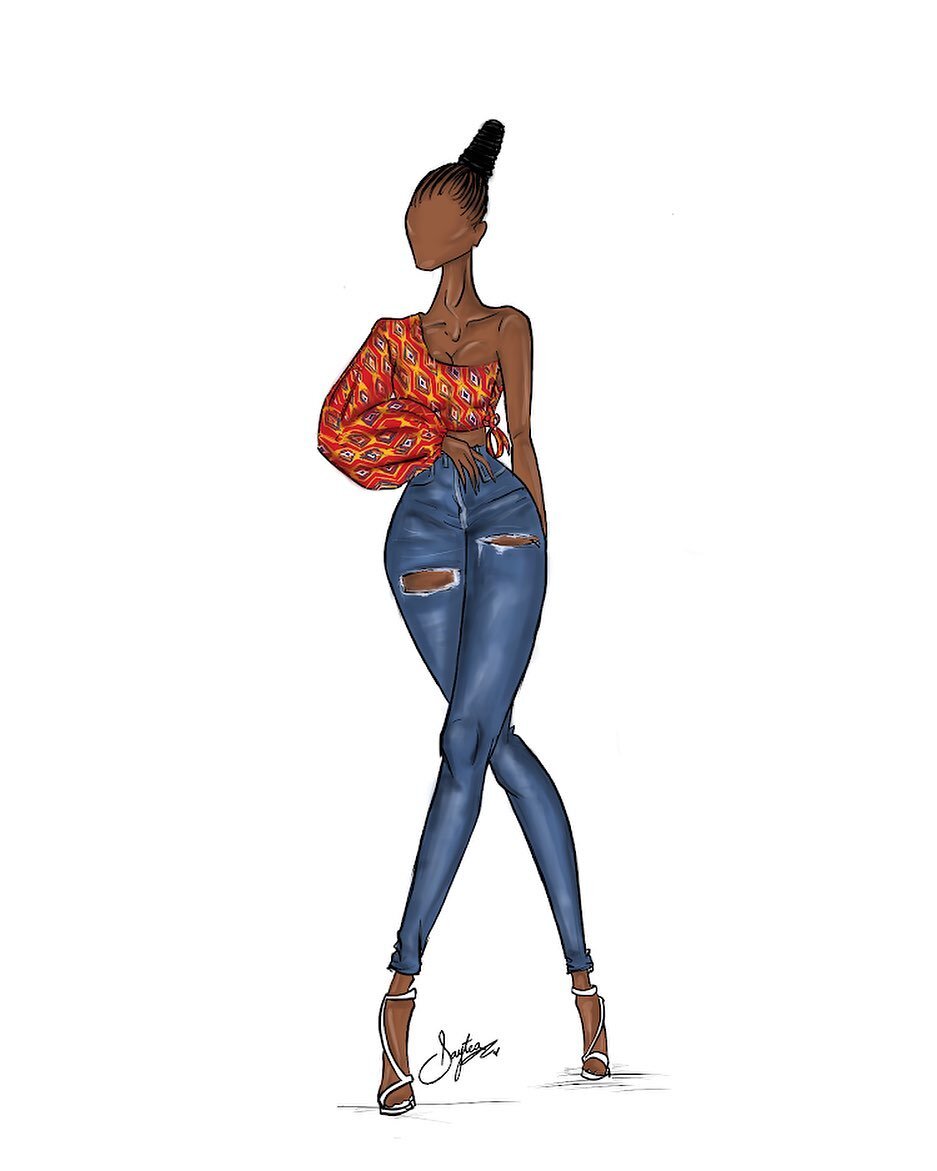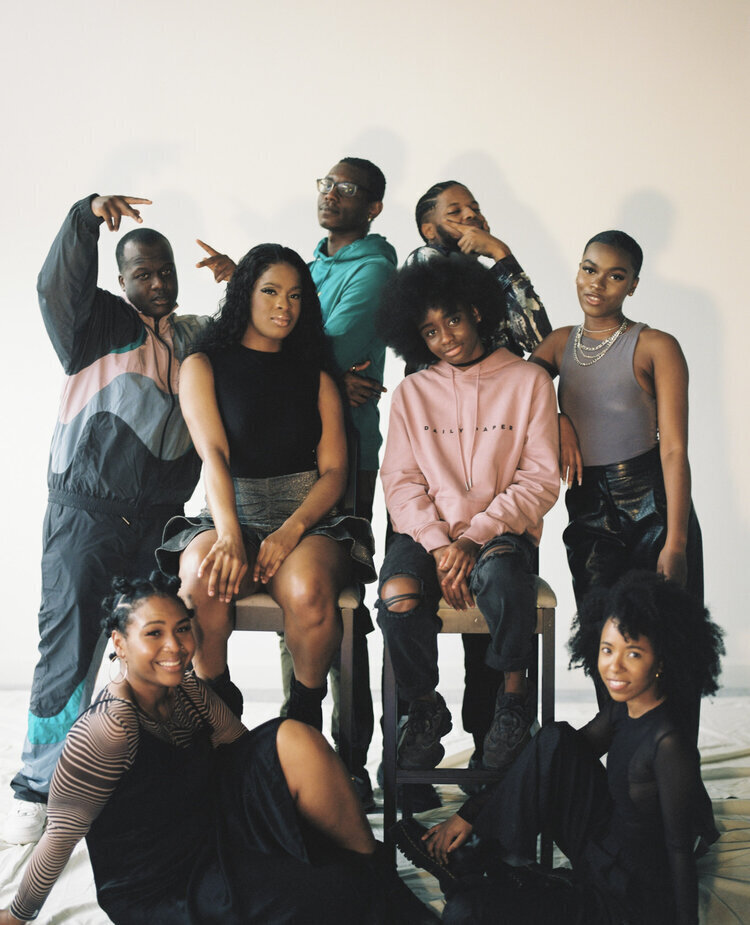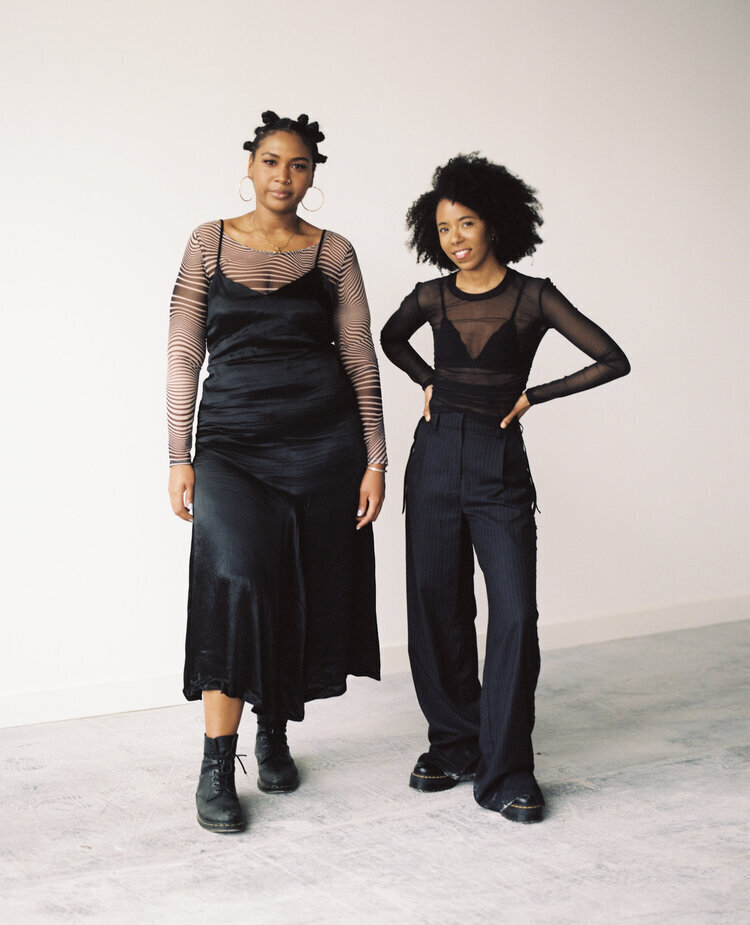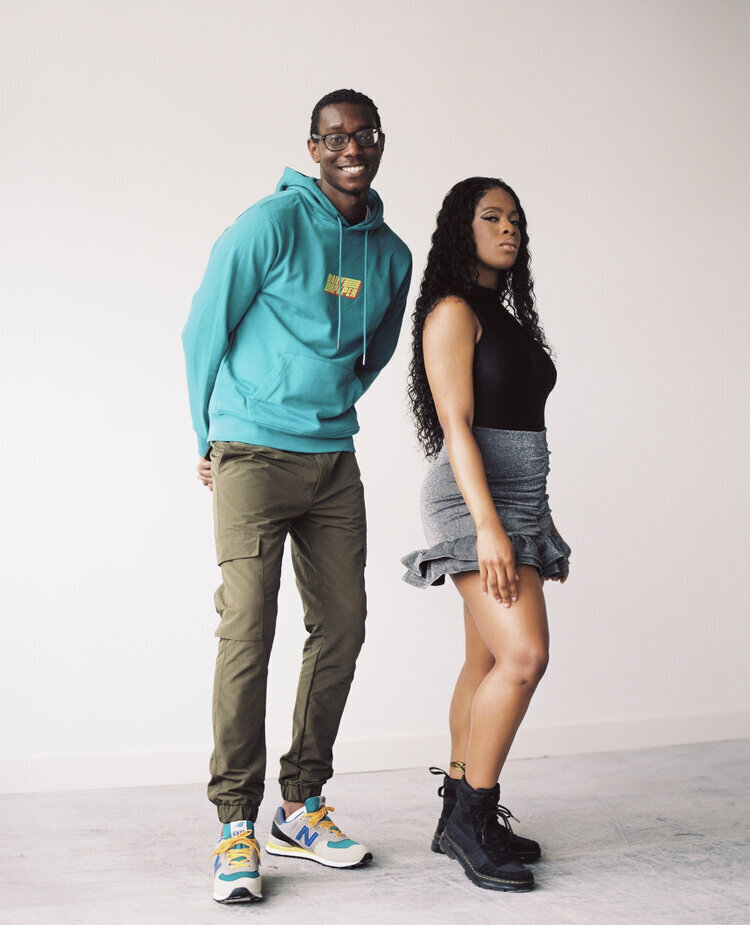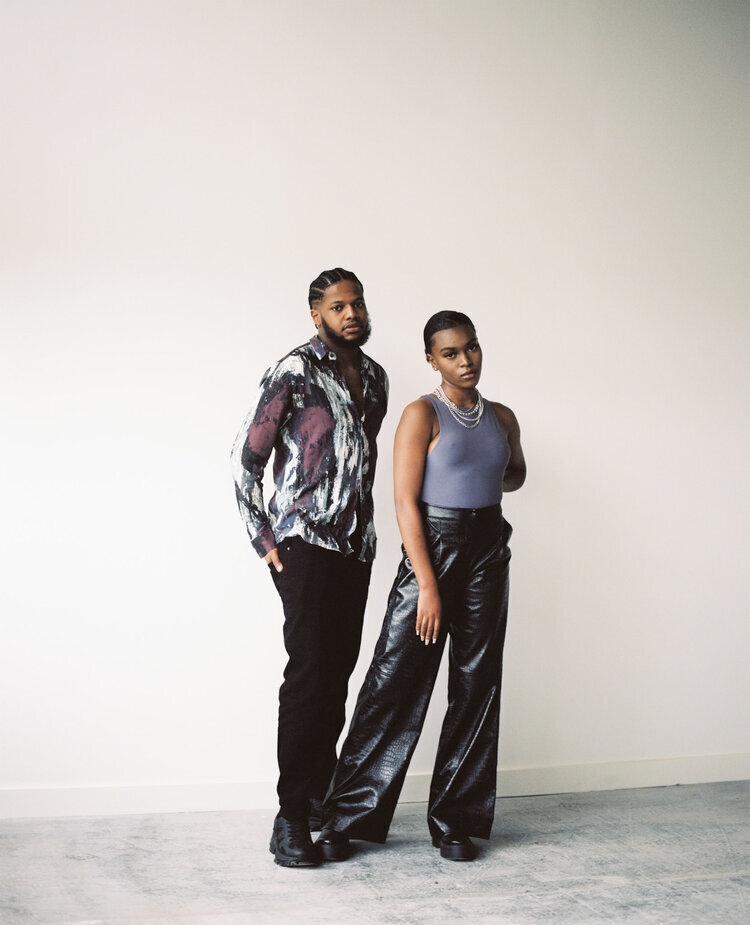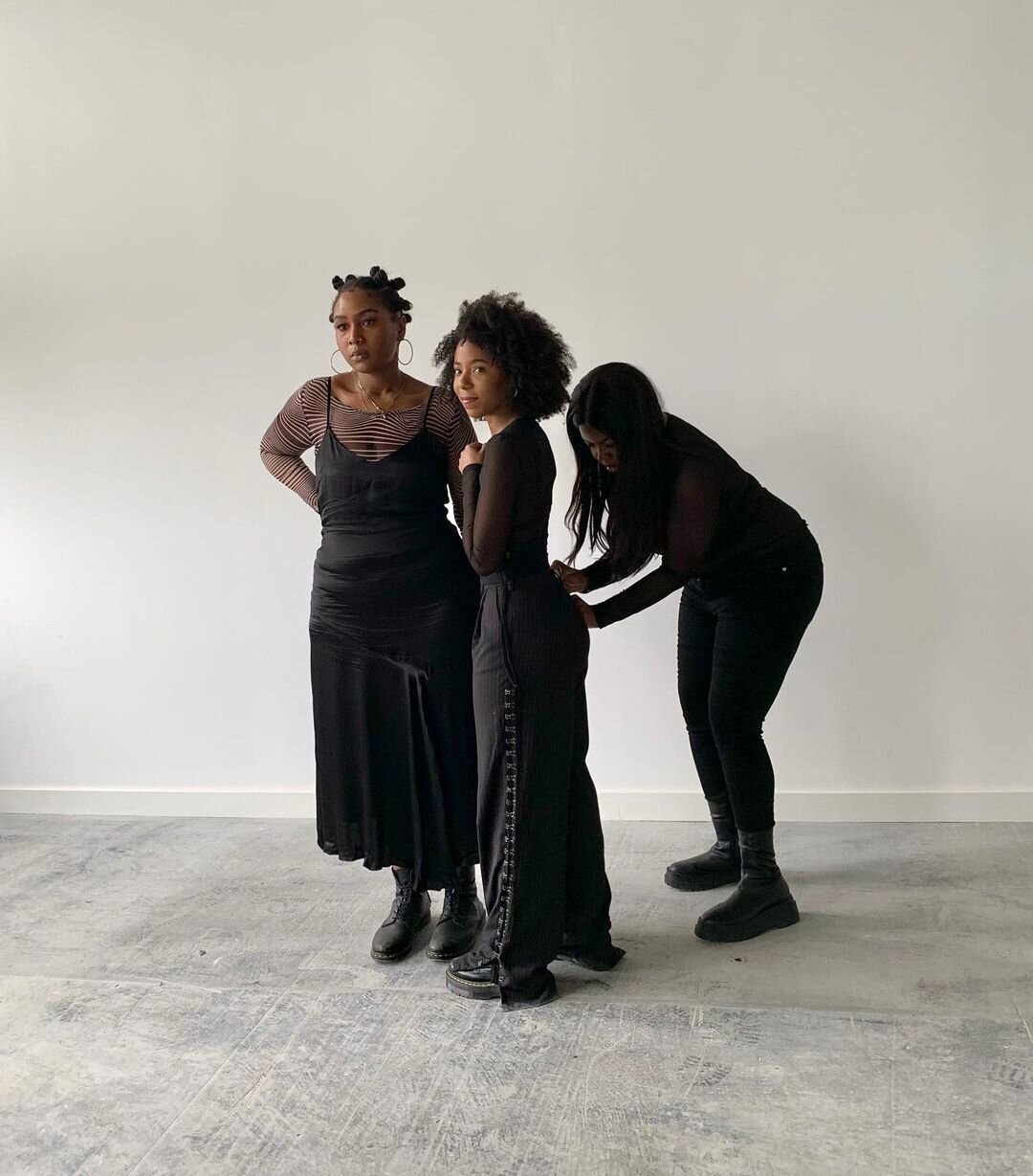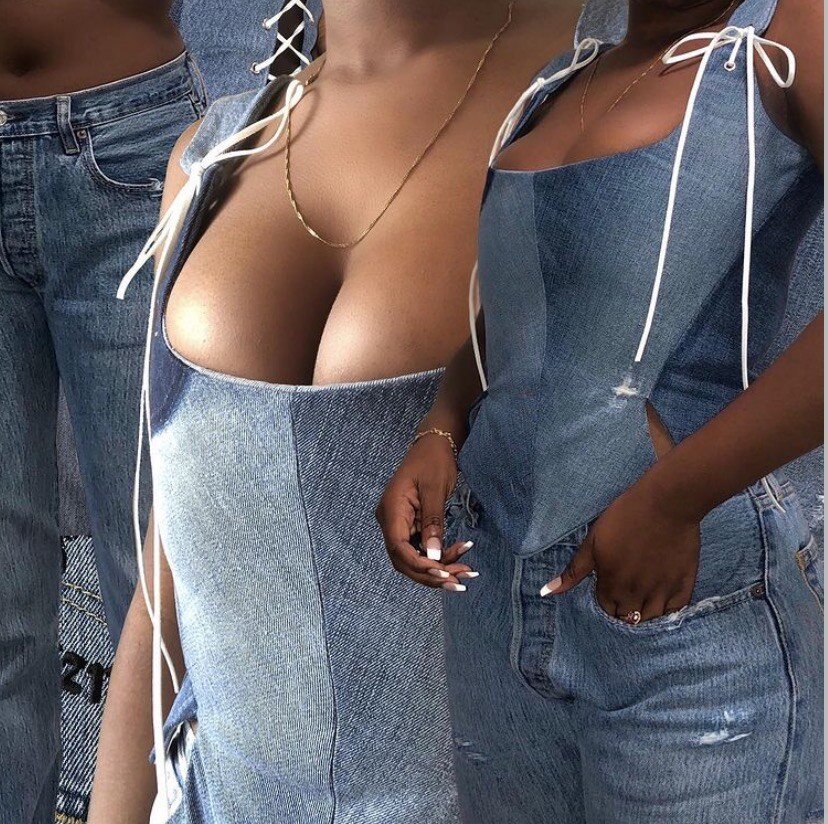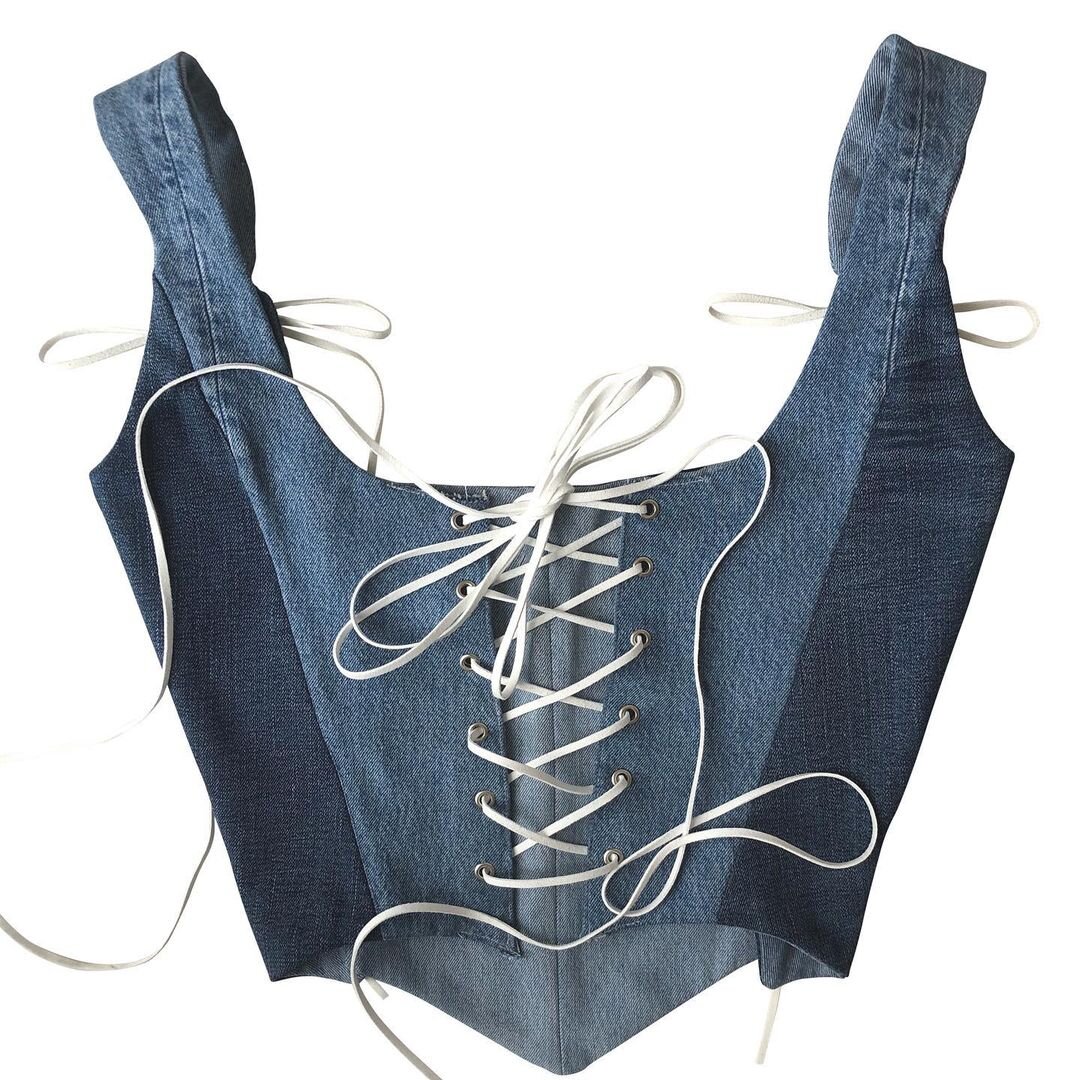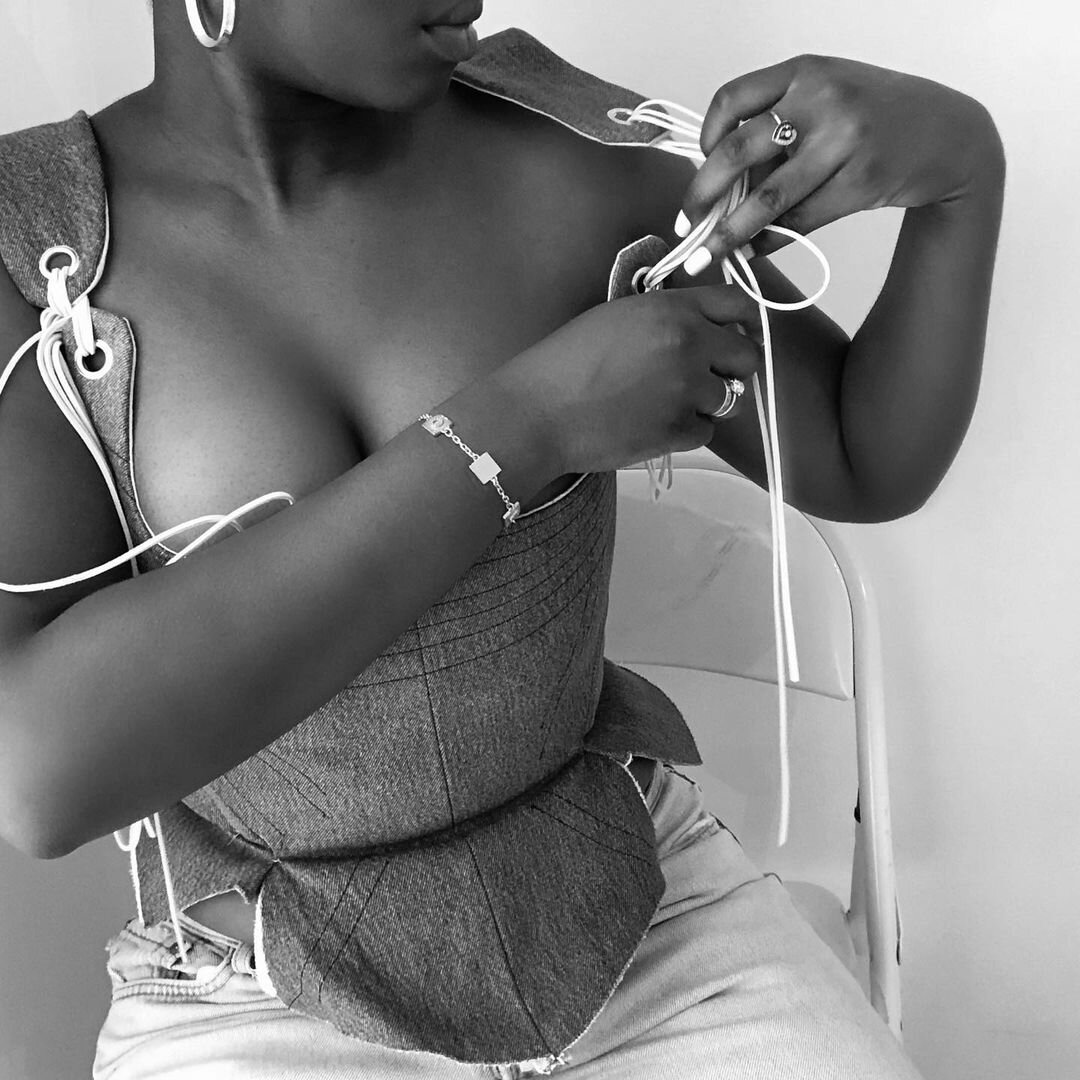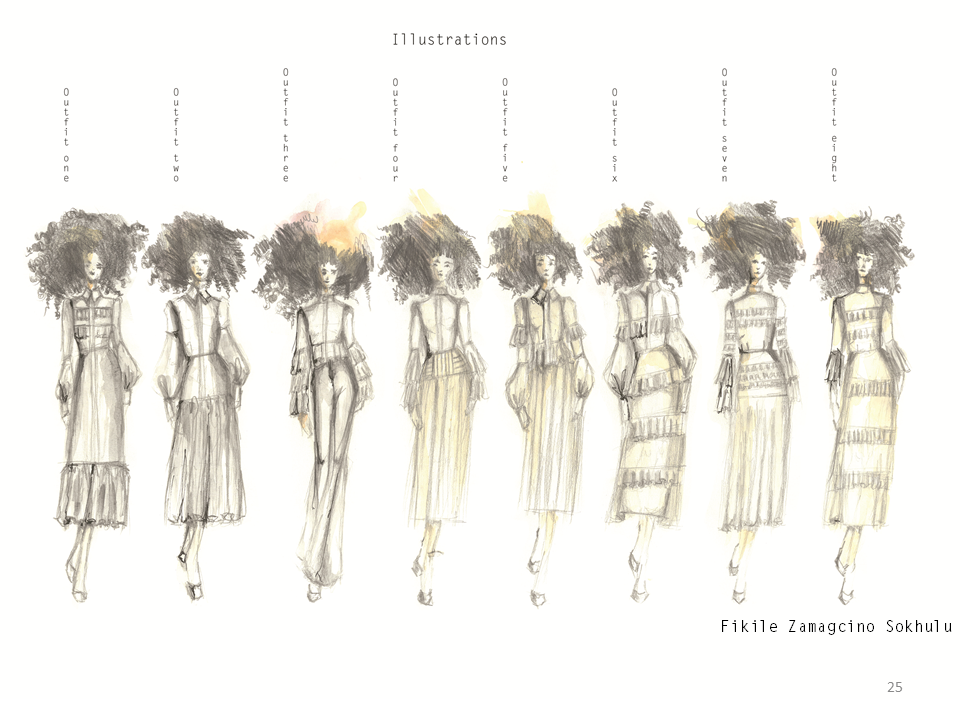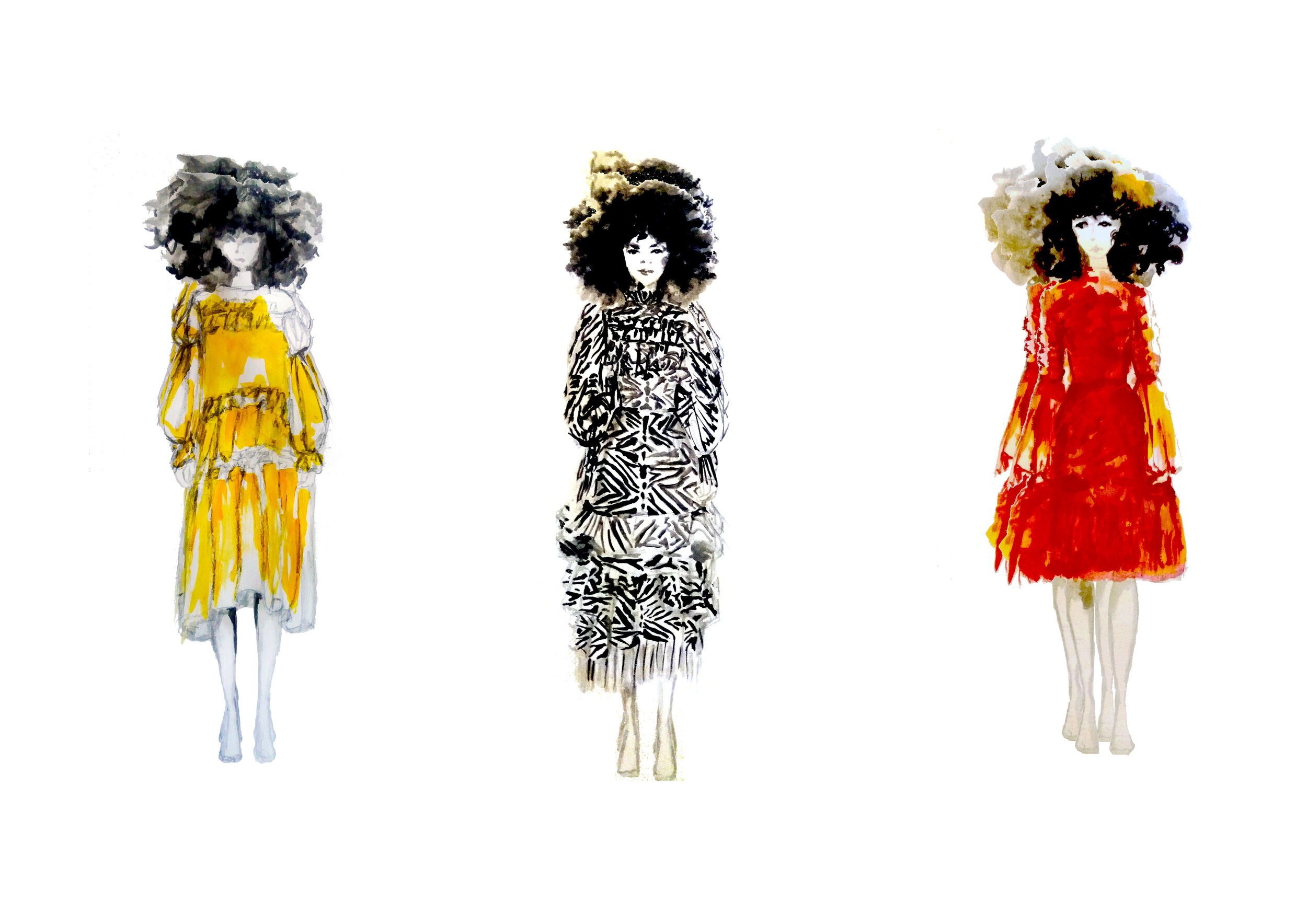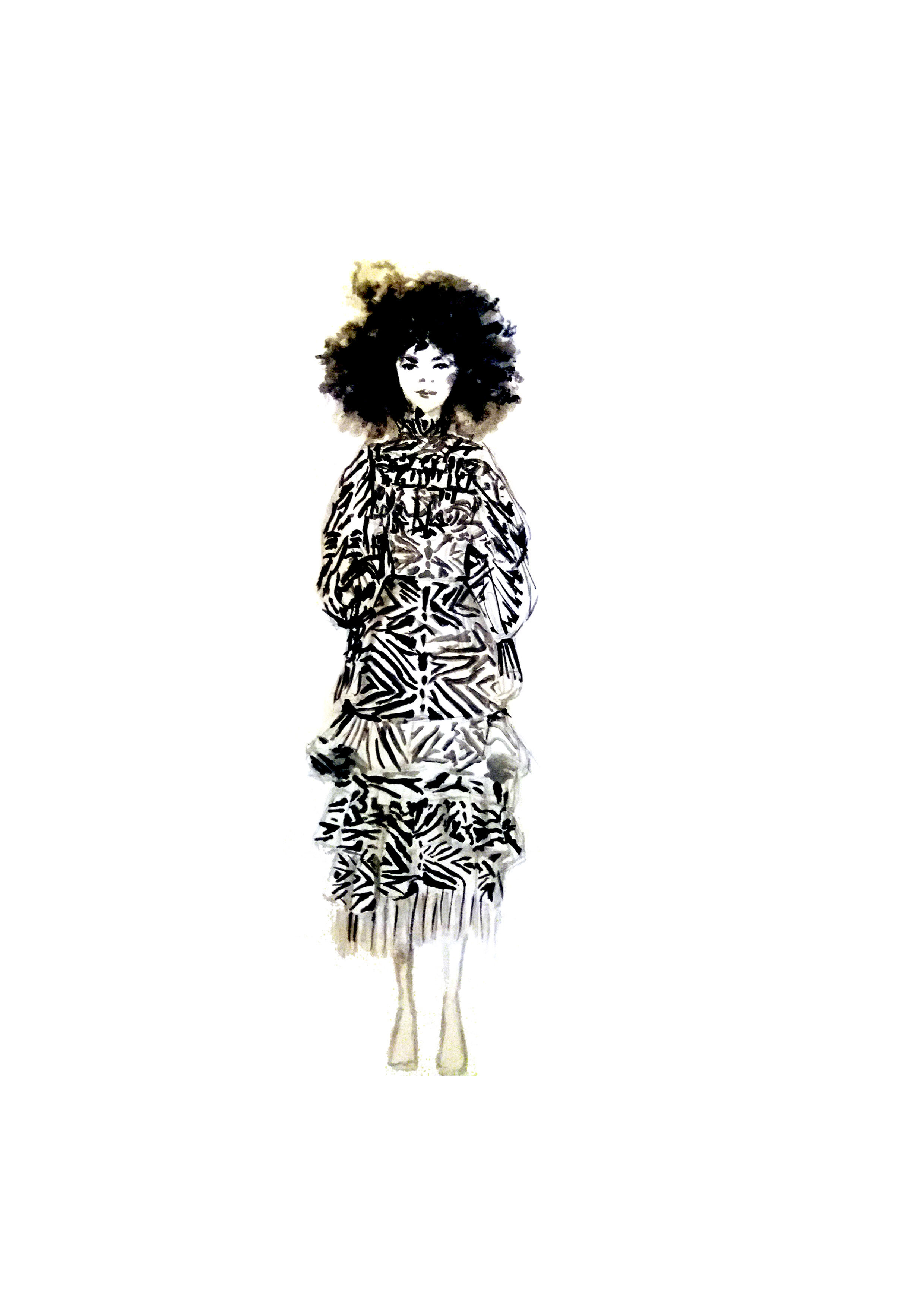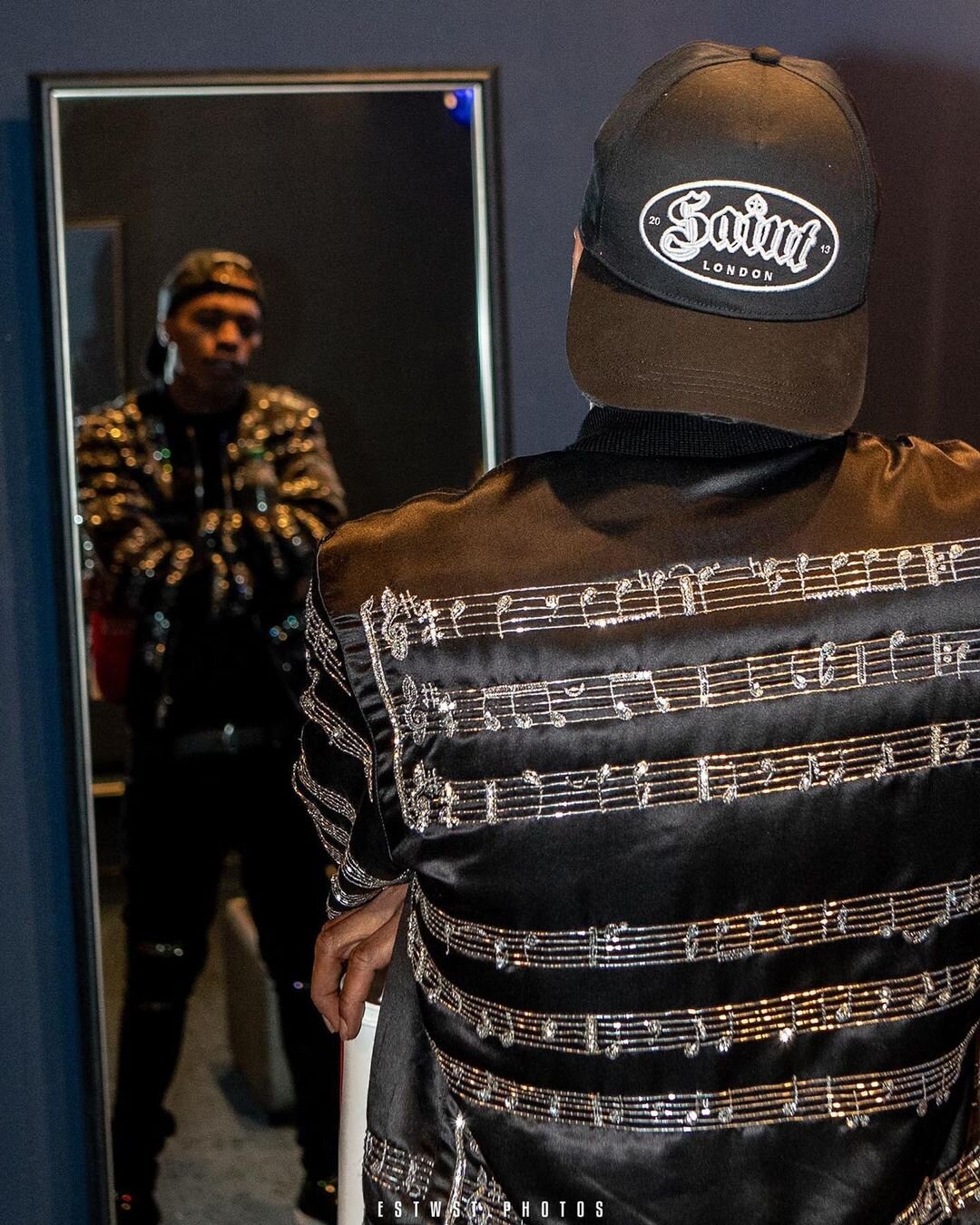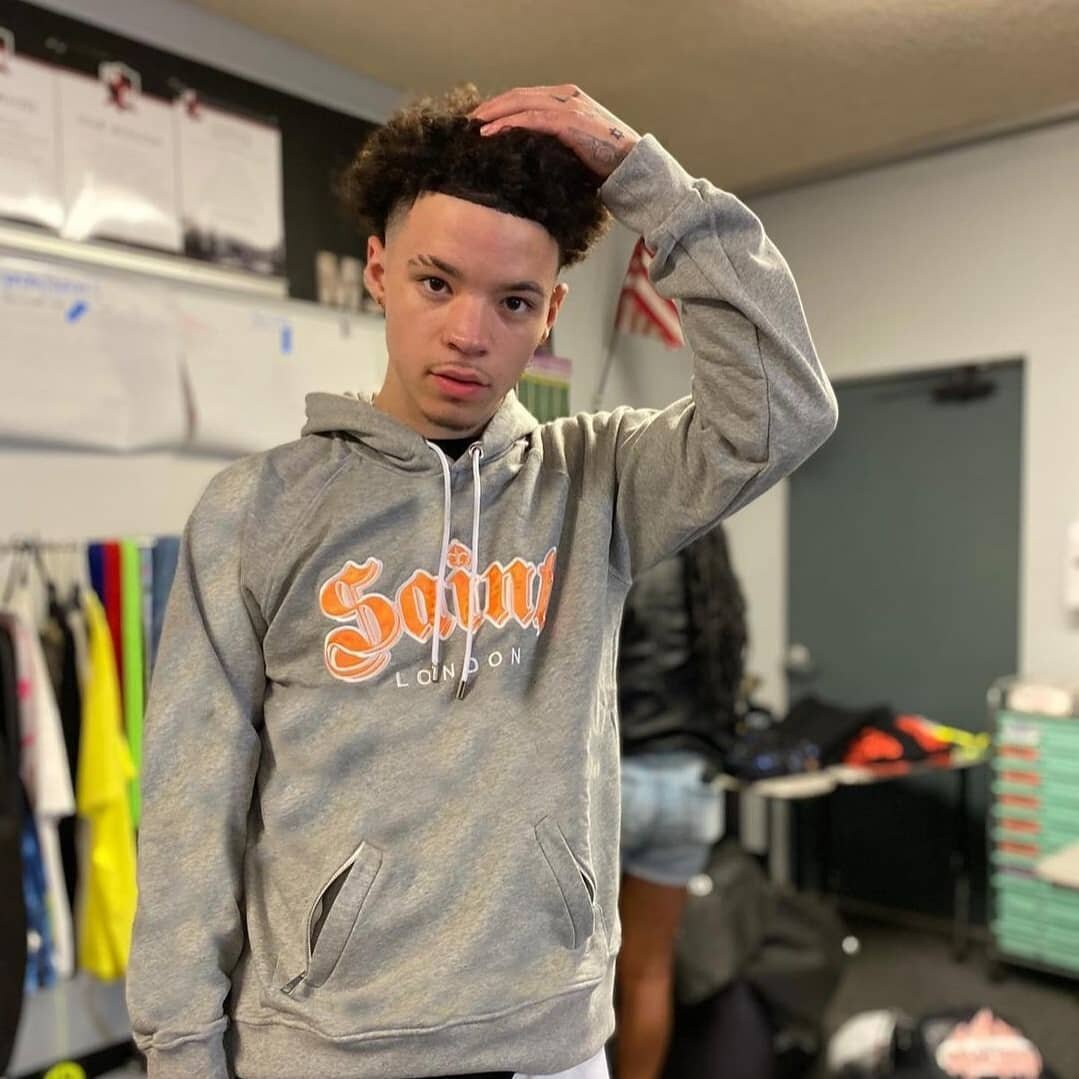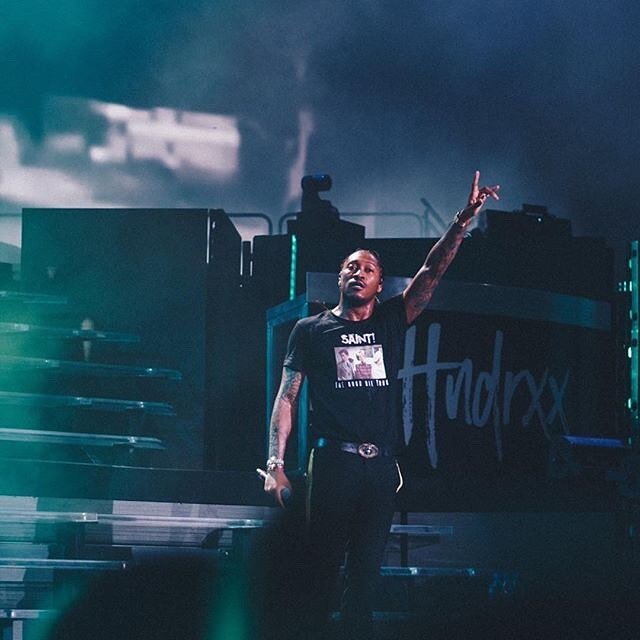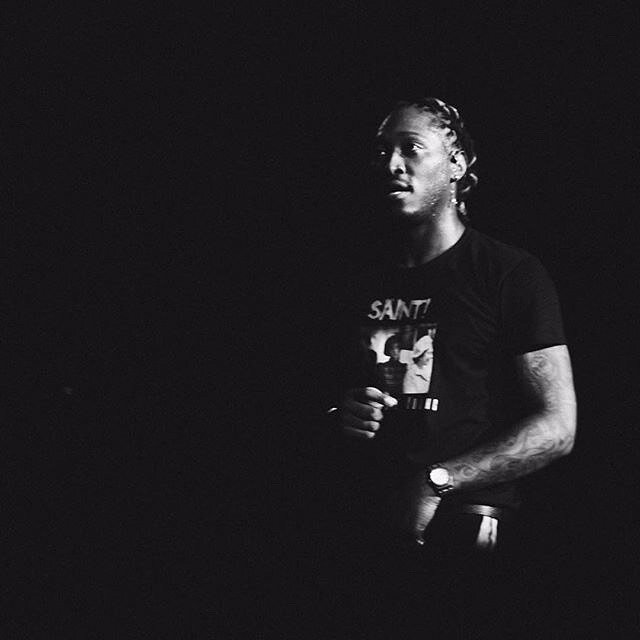Tapping into the true extent of your God-given gifts with Phillipa Nyasha
Phillipa Nyasha has found her calling in Fashion Design and is embarking on her journey to discovering the true extent and dept of her skills.
“the one thing you definitely have that they won’t is you- your unique mind, ideas and flavour. Sprinkle it all”.
Reaching a point in life where we realise and tap into the gifts God has given us is truly a blessing. Phillipa Nyasha has found her calling in Fashion Design and is embarking on her journey to discovering the true extent and depth of her skills. With a family lineage of creative visionaries, experiencing and observing first hand their talents has influenced Phillipa to wholeheartedly pursue and unravel the creative spirit in her. The technical skills and detail to design are truly impressive!. Elements such as pattern cutting and sewing which have taken individuals years to learn are almost an innate, deeply ingrained skill for this promising designer. She is definitely one to look out for!
Tell us about your talent and how you came to discover it?
I am currently exploring my new found creative disposition within fashion design. I realise a connection between nature and nurture is how I got here today as a creative. Growing up I was exposed to family members who are innovative and gifted with their hands. I believe the inspiration of family alongside life experiences in school and society stimulated my abilities and have played a role in my journey of discovering what I am capable of. In the past, I have dabbled in art, photography and more recently hairdressing. Upon reflection, I realize my passion as a creative has been longstanding as I become enlightened and active in the gift God has given me. Like many of us, I have been a fashion enthusiast especially in women’s going-out-wear and have recently decided to embark on a journey of creating and designing fashion pieces mainly focused on womenswear. I aim to create luxury fashion pieces that compliment any woman. I am only just getting started and look forward to the rest of this journey of dressmaking and freedom in creativity.
Describe your aesthetic?
I believe every woman has the right to feel luxurious so I would say my aesthetic definitely aims to encompass/cater to this. I am inspired by the woman I am becoming, who aims to embody elegance, whose stepping out bold and confident in the pieces she’s wearing. I look for inspiration in various places from artwork to runway pieces, designer, high fashion and current trends. I aim to explore femininity through various silhouettes, shapes and compositions & textures of fabric.
What makes you stand out?
I would say the fact that I am currently making clothes myself, opens up opportunities for me to get very experimental, taking my time to perfect whatever it is I create, making each piece different. I desire to keep this element of my work going in any future endeavours. I believe there is great power in how God created me. I’ve come across a statement that read “the one thing you definitely have that they won’t is you- your unique mind, ideas and flavour. Sprinkle it all”. So, I believe what God will use to make me stand out is me.
Do you feel that the industry is lacking black creatives?
I feel as though we are still very much a minority within the industry. I acknowledge that there has been a rise in independent black-owned fashion brands and other black creatives over the years, which I think has been very refreshing and a great move towards change. I also think social media has created a great platform for black creatives to be seen on a larger scale and be noticed, however, I believe that there is still room for more black creatives to take up household name status and to be recognised and appreciated for their work, rather than be used by larger brands as inspiration.
What are your feelings towards the natural hair movement?
I think it is a personal choice on how you treat your hair and you should do what feels most comfortable and empowering to you. I think our hair forms a part of our identity as women, and I appreciate the beauty in the natural hair movement, it’s allowing us to be proud of who we are and what we were given. I think it’s great that people are increasingly appreciating their hair, whether this is through conformity or genuine appreciation it brings about a community of sisterhood, confidence, familiarity and representation for those who participate.
What are your plans for the future?
I aim to build a platform where I can use my creativity to impact women on how they look and feel & would love to someday own a luxury womenswear brand. I would love to create pieces that are very explorative in their artistic vision whilst maintaining retail accessibility. I aim to not limit myself but maximize my potential in everything I do, to create unique pieces that I hope will be loved by many.
Follow Phillipa on her Instagram to experience her exciting journey @phillipanyasha
Asoamoke from Lagos to London - Heritage fused with Modern Femininity.
We virtually sat down with Mary Bolawole (@itunumary), founder and designer behind ASOAMOKE (@asoamoke). A brand that offers exclusive womenswear handmade in London inspired by her Nigerian heritage.
‘Have a clear vision and know your why’ - Asoamoke founder, Mary Bolawole
@itunumary_ Founder of Asoamoke
Mary Bolawole’s life started in Lagos. She later found herself in the unfamiliar settings of Birmingham, where she draws on her experiences to run her brand Asoamoke. She did not allow the effects of the covid-19 pandemic to hold her back whilst showing her pride in where she came
I, virtually sat down with Mary Bolawole (@itunumary), founder and designer behind ASOAMOKE (@asoamoke). A brand that offers exclusive womenswear handmade in London inspired by her Nigerian heritage.
Born and raised in Ketu, Lagos, Bolawole was constantly surrounded by three things; fashion, science and hair. Her father a doctor, her mother a seamstress and a local hairdressing salon where she would spend her time. Without knowing, each of these would influence her future choices and shape her into the young woman and designer she is today.
At eight years old, her family moved to London and a new journey began. When I asked where it all started for her, she recalled, ‘my love for fashion starting young, I would cut up everything and handmake clothes for my dolls’. She always knew that she wanted to start a fashion brand but it was not until this time last year that she finally decided to take the leap of faith with encouragement from her loved ones and friends.
Her first encounter with fashion outside of Nigeria were textiles lessons in a secondary school which quickly became a favourite subject alongside science. She took things further by choosing to study fashion with textiles at college and laughs sharing “I remember in my final year; I had been working hard on my portfolio and on the road to achieving an A* but I ended up leaving my folder on the bus and had to start all over again but my new project was better than I expected”. A lesson to learn, sometimes starting over, produces greater results because of what you have already learnt from the route you first took.
Despite her passion, a degree in medical science was her final option for university and draws on the skills she gained to help when researching and designing a collection. Whilst at university, she purchased a sewing machine but did not actually use it till after graduating. It was at this point, she explained ‘I had achieved my academic goals and wanted to now do what I enjoyed and was born to do’.
Mary emphasises the need for education, she didn’t just want to make clothes so took short courses to learn and understand the technical side of the fashion industry. This helps her execute some of the design components in her pieces.
The actualisation of Asoamoke started with the name, inspired by her Yoruba roots and the name of her mother, a talented seamstress who carries a wealth of knowledge on lace and Ankara. The name broken down translates as;
Aso the Yoruba word for clothes
Amoke a Yoruba name meaning ‘to be cherished and treasured’
Arẹwà collection Available here.
The brand name, has a double meaning - the clothes and the wearers of the clothes are to be cherished and treasured. It initially started with bonnets and facemasks which were sold on Ebay then Etsy and evolved into their own website after a post on Instagram of Désíre (a square neck top with long straps that can be worn a multiple of ways) led to followers messaging her to purchase.
As a brand inspired by her home, Mary describes African fashion as ‘the people behind the scenes make it what it is, the artisans and their skills. The potential of what it could be is great, it needs to be nurtured’. As part of a new generation of storytellers, she hopes to hone in on her history and create new stories through the clothes that she makes.
Her intentions for Asoamoke, are to grow it into a brand that creates a connection between those in the diaspora and their heritage, whilst incorporating the importance of culture and community through each garment. One day she hopes to take her manufacturing to Nigeria and build her community by drawing on the artisan skills of the local craftsmen and use of traditional techniques.
Multi-Way crop top from ARẸWÀ collection
As a young designer still in the early process of her journey, she expresses the many lessons she has learnt so far and continues to learn. ‘I have learnt so many lessons on this journey, from knowing that I can’t do everything myself to constantly being open to learning new things and ways of doing them. I have found sampling is key especially if you are making the pieces yourself, make the effort to learn how to make patterns because this is what will help to bring your designs to life.’
The advice she would give to future designers comes in 3 words;
‘Stop PROCRASTINATING – Do that thing you’ve been wanting/need to do
FOCUS – Make sure your vision is very clear
STRATEGY – Plan in small steps how to achieve your vision and celebrate the small wins'
As June 21st looms, prepare you outfits by visiting the Asoamoke website and keep a look out for the new and exclusive pieces via their Instagram!
FASHIONING IN WEST AFRICA Review
The documentary explores conversations with creatives from the African continent specifically in West Africa. Mujay-Bärg sat down with designers and creatives who have fought against many obstacles to establish themselves authentically and purposefully.
‘Do what you can, with what you have, where you are’ - Loza Maleombho
Part 1 of a 4-part documentary series shown via Fashion Scout (@fashionscout) as part of their digital showcase for London Fashion week. African fashion nomad, Arieta Mujay Bärg (@arietawho) and editor in chief of Debonair Afrik Ekuban Emmanuel (@nuelbans) make the ultimate power team as producer and director.
The documentary explores conversations with creatives from the African continent specifically in West Africa. Mujay-Bärg sat down with designers and creatives who have fought against many obstacles to establish themselves authentically and purposefully. From their designs to the use of artisan skills and innovation in creativity to create pieces that are proudly Made in Africa yet can be enjoyed and worn the world over.
Each designer tells their story and how they do what they do the way they choose to do it in a place that is not always stable. They highlight sustainability, manufacturing, production and sourcing giving us not just insight but the reality. I highly recommend for designers or individuals who are considering manufacturing, producing or sourcing in Africa to know what it takes because it is feasible and these designers are evidence of the possibilities.
We are taken on a journey that re-defines fashion in Africa and gives us a glimpse into the greatness, talent and skills that Africa carries alongside the trials they face and how they overcome them. From Nigeria to Ghana and Ivory Coast, the various perspectives cause us, viewers, to think about the repositioning of Africa in the global fashion industry and how we can use the lessons learnt to come together and be a force to be reckoned with.
The documentary is not just important but necessary as Africa has yet again become the topic of conversation. It encourages us to be storytellers of our history and cultures. In a world that is slowly changing, a new generation has risen that refuses to stand still. Creativity is the new currency and human resource the drive for economic growth, Mujay-Bärg and Emmanuel are story makers showcasing the new African narrative that does not conform and bridges the gap between two worlds created by post-colonial ideologies.
As an African fashion enthusiast, the documentary really opened my eyes to the triumphs, struggles and need for collaboration and community. The Fashion industry in Africa needs to be built to not only last a lifetime but evolve and make room for what is to come.
Look out for the following parts by following Arieta and Ekuban on their social media as theycontinue to show what fashion is and means to Africans.
Watch Fashioning West Africa below:
Stylists - The real masterminds behind all our trends. Catching up with upcoming black stylist: Korede Alabi.
Up and coming fashion stylist Korede Alabi is navigating her way through the fashion industry and is simply killing it! With an impressive portfolio under her sleeve, she is one to look out for!
“Up and coming fashion stylist Korede Alabi is navigating her way through the fashion industry and is simply killing it! With an impressive portfolio under her sleeve, she is one to look out for!” - Vimbai M.
Korede assisted @Jen Eleto onset of the latest PAUSE PRESS PLAY artist edition.
Your favourite singers, rappers, models in magazines, even characters in movies and shows, all those looks you see from them/there would not be successful without the vision of the stylists who work behind the scenes! Stylists are natural fashion experts! From having a deep understanding of how clothes are supposed to fit on different body shapes to which pieces best suit certain themes, they have top-notch knowledge on what makes a product successful and in essence are the trendsetters of our society.
There sometimes seems to be a certain disregard for Fashion stylists with the notion that they ‘just pick clothes’, this notion is simply wrong. This significant role facilitates relationships between individuals within the industry such as photographers and models and the success of many campaigns would not exist without their input. It’s more than just selecting clothes, it’s advising the creative world we live in.
Tells us about your styling venture?
I’m an aspiring fashion stylist. I’ve spent the last 6 months assisting experienced stylists from London and LA, learning about the craft and what it takes to be a real successful stylist/image consultant.
Describe your aesthetic?
My personal aesthetic or style is feminine and elegant but still quite edgy and creative. I love a neutral colour palette and to experiment with different textures. This tends to translate into my work.
You can check out Korede’s Instagram page (@lifeofkors) where her own personal style effortlessly generates a page of desirable must-have fashion fits! Her “matrix but make it fashion” post was it for us. The head to toe black ensemble featuring Zara wrinkled effect fringing skirt, NA-KD cut out top matched with some boots and a pair of shades to finish the look was… a look!
What makes you stand out?
I think my degree background does. It’s not industry aligned in the slightest, but I think having a degree in something completely unrelated provides a fresh perspective on the work I do. It has made me into an abstract thinker, disciplined and thorough in the work I do - I think that makes me stand out.
What are your plans for the future?
I’d love to build a bank of high-end clientele. I want to be someone my clients can depend on and I’d love to book shoots on a consistent basis, so I can style full-time.
Abolishing the Status Quo and improving Fashion Habbits with Wuzzy
Eco-conscious brand Wuzzy is all about generating stylish fashion pieces that ensure less damage is done to the environment in the process. This black-owned brand creates amazing new pieces out of vintage denim and each design is simply fly AF!
“What is really important to me is shifting the culture in fashion, by that, I mean changing the mind sets of how we shop”
Model wearing BY.WUZZY (@by.wuzzy) • Instagram photos and videos
Eco-conscious brand Wuzzy is all about generating stylish fashion pieces that ensure less damage is done to the environment in the process. This black-owned brand creates amazing new pieces out of vintage denim and each design is simply fly AF!
Despite the unexpected hardships we all experienced during the pandemic, Wuzzy launched during the summer of 2020 and the handmade collection resonated with strong 90’s vibes with detail to technical features. Each item is a must-have and the fact that they’re handmade demonstrates the craftsmanship of Wuzzy as a designer.
What inspired you to start Wuzzy?
I have been wanting to start my own brand for a long time, but everything happens for a reason. The pandemic hit and it was time to slow down, sit down and think. I felt like if I didn't start now, when would I?
How would you describe the aesthetics of your work as well as its ethos and in what way do you want that to have an impact on your audience?
What is really important to me is shifting the culture in fashion, by that, I mean changing the mindsets of how we shop, so being more conscious and mindful of what you buy and what you are buying into.
In this day and age now we’re seeing the rise of firms such as Klarana and Clearpay giving the option to consumers to spend on credit with the “buy now pay later” mentality. When asked if Wuzzy gave this option to purchase, she stated “the reason why I don’t have the buy now pay later option is that I’m not 100% sure I want to promote possible consumer debt. As a young adult myself, I know how easy it can be to be irresponsible with money. Also as a brand, I do promote consciousness and the BNPL models have directly affected millennials”. This statement is a vital one to consider as many young people during the pandemic have easily fallen into debts of up to a whooping £2.7 billion. Practising better shopping habits generate healthier financial lifestyles.
What has been the biggest challenge during the pandemic and how did you overcome it?
The biggest challenge has been realising there is only so much you can do online- building a brand is also about having great content and to do that means that you have to have photoshoots and connect with people and that is really hard when lockdown rules in London especially are so unpredictable, you can barely plan for a week but with that being said I have managed to make it work.
What has been the highlight of your career?
The biggest highlight has honestly been growing an honest and true following during such trying times and actually getting orders.
Fikile Sokhulu - The brand reflecting on femininity within the technicalities of design
Fikile Zamagcino Sokhulu sees the vitality in exploring references to art whilst still providing commercial fashion
“I create with a story in mind hoping it reflects through the designs and makes a connection…”
Model wearing Fikile Sokhulu (@sokhulufikile)
Fikile Zamagcino Sokhulu sees the vitality in exploring references to art whilst still providing commercial fashion. Reflecting on the concept of femininity at the forefront, this influences the silhouettes, whilst digging into the evolving identities of women generates an artistic voice which generates the storytelling aspect within the brand. Besides being a brand that explores art, Fikile Zamagcino Sokhulu is also sustainable and uses natural fabrics to generate pieces. With the clothing industry being a significant contributor to environmental and human damage, sustainable fashion brands ensure that fashion is created with methods that are considerate to decrease that damage. Such brands are shaping the future of fashion as an increasing number of consumers are now have environmental concerns in mind.
Tell us about your brand?
Fikile Zamagcino Sokhulu is a young South African brand based in Kwazulu-Natal established by me, Durban designer Fikile Zamagcino Sokhulu. As a creative I want the brand to practice the idea that fashion can be commercial but still have a reference to art. FZS is young brand. This brand can appeal to a girl who is still finding herself and slowly changing to become a woman or a woman with an established and evolving identity. Women can be strong and fragile and still be able to run their world, this is an idea I practice when designing. We create clothing while ensuring they have an artistic voice.
Your Aesthetic/design?
I am influenced by feminine fashion details and interested in creating clothing that reflects femininity. Femininity and nature inspire organic aesthetic. The idea of being feminine and organic triggers the silhouettes that we create. In most cases, conceptual ideas inspire me into telling a story through technical means of fashion. Design style will evolve as I grow as a designer.
What makes you stand out?
The types of shapes and silhouettes we create have a distinctive design voice. I try to create clothing with meaning, I practise slow fashion. I create with a story in mind hoping it reflects through the designs and makes a connection with our consumers.
What are your plans for the future?
I want the brand FZS to branch more into retail. I want to work with retail stores and expand the business as well as to grow into making it a well-known brand. I want to collaborate with artists and respective brands.
Reece Yeboah - ‘Your favourite rappers favourite designer, how Saint London designer, Reece Yeboah broke the American market and what he’s set to conqueror next’
This magazine contributes to the elevation of black people and in this day and age, it’s more important than ever to ensure the growth and advancement of black creatives, black businesses, black communities!
“Design with a purpose! Make sure everything is understood and explained well through the garments you make”
Reece Yeboah wearing Saint London
If humility was a person then Reece Yeboah (@reeceyeboah) would be it. The British-Ghanaian designer behind Saint London whose accolades alone speak for themselves. Despite this, he remains grounded and focused on the mission he has set out to achieve. I had a catch up with him to talk about his journey so far and what's next for him.
For many designers, when asked about how their journey began, they usually start with when their personal relationship with fashion started, Reece however, recalled the influence of his mother, who would dress him distinctly in the likes of Moschino, Prada and GAP. Though he had no idea what these names meant, he does remember the number of compliments he would receive and how he felt in them.
His personal relationship began when he was in school and a conversation with a good friend which transpired into them wanting to start a brand. They wanted it to be a play on inspiration from Pharell’s Billionaires Boys Club and the NFL Pittsburgh Pirates. It wasn’t until he was sent to Ghana that he had the time to take things seriously.
Before he left for Ghana, he recalls the launch of infamous luxury streetwear brand Trapstar who brought pop-ups and exclusive drops to London giving us the Supreme feel with queues that went round the corner of the building they were hosting in.
Saint London was born in Ghana, whilst out there, he spent his time planning, sketching and designing in preparation for his return to London. That day finally came in 2009.
This was where his journey began.
Rapper Lil Durk Wearing Saint LDN Evil Eye & Core baseball caps!
Why start with streetwear?
Streetwear is in our blood. The streets are a blank canvas and offered me the opportunity to step into an industry with low costings in order for me to study the market and understand the customers. It was something I was comfortable in, having grown up in the environment. I started with t-shirts where I learnt the differences between using blanks and cut-and-sew alongside the ways in which to print using vinyl, screen printing and direct to garment.
What pushed you to launch?
Whilst working at Waitrose, Grenfell happened and I lived directly behind it so you can imagine what was going through my head mentally. I needed that time to try and process everything when everyone was in a panic and the local authority clueless. I quit my job, as they failed to understand what I was going through and this led me to put my all into Saint London.
How did you get stocked at Selfridges?
I gave myself a 6-month timeline to get into Selfridges. My t-shirts were seen by one of the buyers who invited me to the office. We spoke, and I had explained what I had started. He was so impressed that when I presented the collection, they brought everything exclusively. They saw that I came with a community and believed in me and the brand.
After his Selfridges stock sold out, it opened many doors that led to features in Forbes, Dazed, and the likes but he still felt he was not well received in the British market so he made the decision to focus on where he was receiving the most orders and great interest – America. The British Fashion Industry is one that’s known for innovation and rebelliousness where the undiscovered become known yet the consumers prefer heritage brands that have stood the test of changing times and trends which Reece discovered.
His journey took a twist as the NFL sent him a cease and desist letter as his brands’ name, Saint London, was a conflict of interest to one of their teams. To avoid further issues, he made the decision to withdraw and work on a rebrand.
How have you navigated the pandemic?
The pandemic has really been a blessing. It has given me the time I needed to really put in the work behind the scenes in time for the relaunch.
What are you planning next?
I have 8 years' experience in the industry and did everything by myself with no team. What I am building is more than me. I am drawing on my experiences in Ghana and being British to crossbreed cultures from 2 different worlds to create a synergy. I want to remind people to know their roots, embrace their heritage and go beyond borders. When I start, I won’t be stopping so I am doing all the preparation now. There is a difference between starting a brand a clothing line. I intend to retire early before passing things to the next generation of youth.
Future Wearing Good Die Young tee During High Off Life Tour 2019
What is one piece of advice you would give any young upcoming designers?
Design with a purpose! Make sure everything is understood and explained well through the garments you make, the visuals you create and the story you're telling.
What is one lesson you have learnt?
Preparation is key! Study the business you are going into and cover all the bases of building and running a brand. Make sure you do all the necessary work to set everything up from the legal to the and financial side. Create a 9 - 18-month plan on how you will go about building your brand and break it down into 3-month sections
Creating and running a brand isn't his only skill, he styles and dabbles into the graphics of every concept he puts out. It’s safe to say he is becoming a master of all understanding the fundamentals of a business and brand as well as the creative side of things. His work has been seen on your favourite artists from #Future and Gucci Mane to #Moneybaggyo and #lildurk. He’s styled alongside Jason Rembert and boasts a wealth of experience at such a young age. He continually puts in the work and I am certain that when he launches his new project, he will take the international markets by storm. You can check him out at @reeceyeboah on Instagram and @saint_london.
Black-owned brand Keïta on a mission to showcase Africa on a grand scale whilst promoting women’s empowerment
Black-owned brand Keïta on a mission to showcase Africa on a grand scale whilst promoting women’s empowerment
Feminine
contemporary
African
Keïta, a Lagos based womenswear brand is showing us the meaning of sisterhood as it embraces the notion of strong empowered women elevating each other. What’s not to love about a brand that supports the advancement of women? Especially in a time where we are sometimes undermined, more than ever we are seeing the importance of generating a community for us to unite, thrive and support one another. A Keïta girl is described as fun, elegant, sexy and a boss, we certainly are bosses in our own right! The beautifully crafted exclusive pieces from Keïta represent just that while also ensuring the brand utilizes the richness of African culture.
Tells us about your brand?
Keïta is a Nigerian based clothing brand which focuses on utilizing and showcasing the vast resources available to us in Nigeria. We also aim to invest in the untapped talent in the industry where we can. We are not only focused on resources in Nigeria, but Africa as a whole. We draw inspiration from all over Africa due to the richness of culture we possess on the continent. We sometimes get inspired through music or symbols from different tribes or art forms and incorporate these elements into our designs.
How would you describe your aesthetic/design?
Feminine, Contemporary, African
What makes you stand out?
We stand out mostly through our marketing techniques, specifically our animations. These accompany each drop and have slowly become part of our brand identity. It’s different and outside the scope of what is seen as ‘normal’ marketing strategies. It’s more fun and sometimes transcends reality. There are things that we are able to show in these animations that we would not be able to achieve with real models and sets.
What are your plans for the future?
Our plan for the future is simple; to showcase Africa on a grand scale. To make Keïta a lifestyle!
Do you think the fashion industry is lacking black creatives? If so, why?
Definitely. There is so much talent within the black community that is not given a chance to be showcased properly, a lot of these spaces are taken up by white people. There are so many limits placed on black people simply due to racism. There are fewer industry role models with the same influence and power as their peers. When black creatives do get a chance to pitch their ideas to these big brands, their work is sometimes stolen. Even when these power brands or publications try to be diverse, they’re still not making an effort as they’re limiting it to hiring the same black token photographer for shoots etc. This is as a result of black people not fitting the ‘norm’, although there has been some improvement over the years, the fashion industry still has a long way to go. There is so much undiscovered talent that needs to be tapped into.
The magazine giving back to the culture and is all for the culture! The Blacklist
This magazine contributes to the elevation of black people and in this day and age, it’s more important than ever to ensure the growth and advancement of black creatives, black businesses, black communities!
The magazine giving back to the culture and is all for the culture! The Blacklist
This magazine contributes to the elevation of black people and in this day and age, it’s more important than ever to ensure the growth and advancement of black creatives, black businesses, black communities!
The Blacklist Magazine isn’t afraid to discuss taboo topics within the black community as they address things directly with confidence. This fashion and lifestyle magazine see the importance of sharing the experiences of our people and provides a platform for anyone to speak out. With their latest limited edition zine in collaboration with Converse UK, they use their publication to highlight significant moments in the black lives movement to “reflect on 2020 as it’s challenged us all differently, and appreciate the topics that matter to our community even once they’ve stopped trending”.
Explain what The Blacklist Magazine is, what are you all about?
The Blacklist Magazine is an annual culture, art and fashion magazine, that celebrates and discusses taboo topics within the black community. We aim to celebrate the work of black creatives from different backgrounds across the UK. We have discussions on our platform around mental health, sexuality, black history and education and much more.
During 2020, we have seen the importance of education and sharing the experiences of the black community and we hope that The Blacklist Magazine can do that. We hope that by doing this, even if it is a small amount, we can help the growth of the black economy, which is something we feel is especially important right now. We believe in inclusivity; this is not just a magazine about the black community for the black community but, is a publication that can be picked up by anyone who wants to learn more.
Our aim is to give black creatives a chance to speak out and share their experiences.
What does your aesthetic represent?
We want to reflect the boldness and creativity within the black community in our aesthetic and design.
What makes you stand out?
Our ethos and message make us stand out; we really are doing this to give black creatives a chance to share their experiences openly in a safe space. We are trying to combat the stereotypes that are portrayed in mainstream media and give people an opportunity to be authentically themselves.
What are your plans for the future?
We've just released our first mini-zine, which looks at black cultural moments over the year, in collaboration with Converse LDN. It was a fantastic opportunity and we definitely plan to release more mini zines in the future. The next step for us is Issue 2 and we are super excited to release this issue because we have had so many brilliant submissions. Obviously, in the current situation, the country is in some of our plans are on hold but when things get better, we are hoping that we can provide more opportunities for the community.
Maison Bent representing black luxury in an industry that lacks black talent
founder and designer Shanna Bent spent time working for some of the most reputable fashion houses including Alexander McQueen, the next step was to venture into her own brand. Maison Bent, a luxury black-owned womenswear brand explores a variety of perspectives taken from disciplines involving art, history, literature and sustainable practices. in order to share stories through finery for the “femme du mode” (a sophisticated woman belonging to fashion society; a woman of the world).
Maison Bent representing black luxury in an industry that lacks black talent
When fashion houses were dominating the scene with little to no black creatives in sight, Maison Bent gave us the black luxury we all needed. The brand is an inspiration for more black talent to tap into the world of luxury fashion.
After founder and designer Shanna Bent spent time working for some of the most reputable fashion houses including Alexander McQueen, the next step was to venture into her own brand. Maison Bent, a luxury black-owned womenswear brand explores a variety of perspectives taken from disciplines involving art, history, literature and sustainable practices. in order to share stories through finery for the “femme du mode” (a sophisticated woman belonging to fashion society; a woman of the world).
In her first collection, effortlessly crafted tailored suits were the focus. With a twist that turned away from your usual conventional classic silhouettes, boundaries were pushed with innovative designs that demonstrated individuality and provided a sense of empowerment. This was a call to recognise that power of modern-day women and their increasing influence on an international scale.
Now With the release of SS21 collection which stimulates the interconnection between feminine Jamaican nostalgia, inspiration was taken from her grandmothers’ journey and transition from Jamaica to the United Kingdom decades back.
What made Shanna Bent want to start her own brand?
Maison Bent is a sustainable, luxury Womenswear brand for the 'femme du monde'. After years within the industry beginning with her time at Central Saint Martins, London College of Fashion, pioneering companies such as Alexander McQueen, Roland Mouret and Agent Provocateur and her time as a Fashion and Music journalist, Shanna Bent decided it was time to launch her brand to fulfil 'black luxury'. The lack of black talent within luxury fashion has always been extremely evident during her time in the industry which has nurtured her mission to work with other black creatives.
Explain the aesthetic/design of Maison Bent?
Maison Bent currently creates occasion wear made from sustainable fabrics and processes including a mix of natural fabrics and end-of-line materials left over from other fashion houses. All items are made-to-order within their Wimbledon studio by experienced artisans.
“Shanna Bent decided it was time to launch her brand to fulfil 'black luxury'. ”
What makes you stand out?
Many brands outsource their production, thus being very distant from the designing, manufacturing and distributing processes. Maison Bent, however, creates all items in-house and provides opportunities to local professionals and internships to local young people. The main long-term mission is to provide as many jobs and opportunities to minorities as possible who usually lack opportunities within the industry.
What are your plans for the future?
Maison Bent is on a mission to become a pioneering household name, implementing the best sustainable and ethical practices.
Stories We Cherish, the brand redefining Africa by capturing its true essence through print.
Stories We Cherish use their designs and prints to tell the stories of African communities with a touch of fun and quirky vibes. With a focus to celebrate rather than dwell on to the negative perception of Africa’s reputation, owner Cherish uses fashion to share a glimpse of the true Africa we all need to see.
Stories We Cherish
Stories We Cherish use their designs and prints to tell the stories of African communities with a touch of fun and quirky vibes. With a focus to celebrate rather than dwell on to the negative perception of Africa’s reputation, owner Cherish uses fashion to share a glimpse of the true Africa we all need to see.
What inspired the mattress man print?
I went to school in Zimbabwe and at 10 I remember being asked what I wanted to be when I grew older. I answered that l wanted to be a tourist and a philanthropist and with me being from such a poor background, that would have been regarded as entirely out of reach. The irony is that I have started a brand that is based on my travel experiences, and that has a philanthropic thread to it. It’s mind-boggling!
I did end up being a tourist, although not for a living as it transpired it’s not a job (wishful thinking, though). For the last five years, I have travelled across the globe, from Madagascar to Korea, Australia to Ethiopia, all countries offering amazing experiences and opportunities. The travels through Africa form the basis of my brand. The mattress man was actually my first print and the first country (Ethiopia) I backpacked, and couch surfed. I remember thinking that Ethiopia was the most beautiful country I had ever seen. Everything was so beautiful, the people, the landscapes and the food. But it was when I took a trip to the market that I got inspired. I saw this man from afar carrying lots of mattresses. I couldn’t believe my eyes, I had to stop to count them. He carried them so effortlessly, I really was wowed. I saw a king in him, but he wasn’t the only one. I took a bus to the North and the tiniest women were carrying the heaviest loads and that’s when I knew I had to share what I felt with the world.
Mattress Man Print Blue Shirt £96.00
Over the years we are seeing the gradual rise of Black African creatives making their mark upon the industry, however do you feel like more still needs to be done for the world to acknowledge our talents?
The question I have is whose validation are we seeking when we say the ‘world’? Because nearly everything that we see creatively was borrowed from African cultures so in that respect, our creativity, our excellence was validated a long time ago. Our creativity has always been realised but the gatekeepers of media and art didn’t look like us so we couldn’t get a piece of the pie. However, the invention of social media has been a beautiful thing for us. Not only does it document the black experience, but it also showcases black excellence. Look at people like Elsa, she is authentically her without any dilution and we love it, without social media, we wouldn’t have had access to her. But if we look in the past, we look at people like Miriam Makeba, Colleen Madamombe, Stella Chiweshe, William Onyeabor, Oliver Mtukudzi, Mbongeni Ngema, all talents that were big in their time but not well known by the black community in the diaspora.
“But the invention of social media has been a beautiful thing for us. Not only does it document the black experience, but it also showcases black excellence.”
In 2050, Africa will have the youngest population in the world, so it’s down to us. In the same way that we are nurturing black owned businesses, we need to nurture our African creators. I am talking all parts of Africa, from Malawi to Zimbabwe, Djibouti to Mayotte, not just the countries that are well known. The more we elevate them, the more African creative excellence will dominate our future. So, the short answer is we are already doing it so let’s not seek validation. The whole world has eyes on us, even Korea is shaku’ing on the beat. Let’s just do and let the world watch in awe!
This year things really took an unexpected turn when covid-19 transformed our lives completely. What has been the biggest struggle both in work life and personal life during the pandemic and how did you overcome it?
To be honest, the pandemic has been an interesting time for me as a creator. I officially launched my whole brand during Covid-19. After losing my contract in March, I decided to focus on building Stories We Cherish. Everything was done at home, my shoots, my website, branding, designing, everything!. Before the pandemic the idea was there but I didn’t have time. Covid-19 gave me the time I needed to cultivate Stories We Cherish.
Everything aligned so perfectly which was such a humbling experience. I understand the privilege I have to have been able to build something I love and enjoy without having to worry. And for that, I am thankful. With that said, I would be super ungrateful if I said that there were any major challenges faced during Covid-19. On the flip side, I even feel a little guilty as I acknowledge and understand that not so many people had a pleasant time.
What advice would you give to other creatives looking to start their own business?
Starting any type of business is like sowing a seed, it doesn’t grow straight away, you have to nurture it. Nurture it mostly with love and patience. Manifest it, speak it into existence, write it down into existence and always be positive with it. Also, don’t give up, even if there are lots of sleepless nights, it will be worth it in the end.




